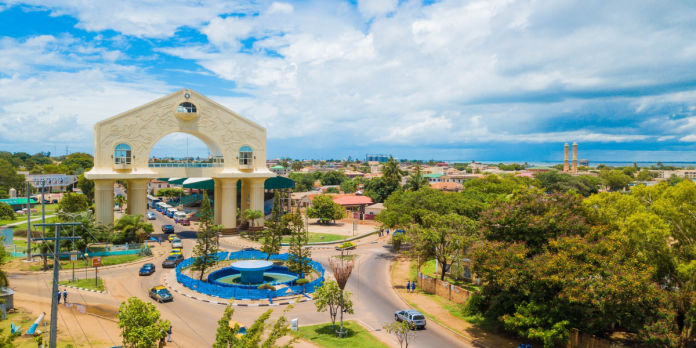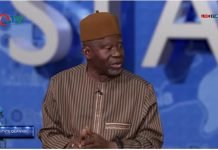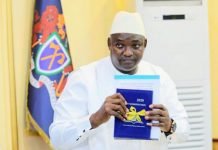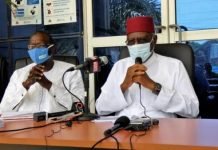
By Banna Sabally
Citizenship is generally defined as the state of being a member of a country and having vested rights, privileges and duties of a citizen. The attribution is significant to the realization of other fundamental human rights enshrined in The Gambian constitution and other regional and international legal instruments.
Possession of a nationality is recognized as a foundation which comes with diplomatic protection of the country of nationality and is also often a legal or practical requirement for the exercise of fundamental rights. Consequently, the right to a nationality has been described globally by law as the “right to have rights.”
However, despite the importance and benefits that comes with being a citizen of a country, many people especially Gambians struggle to get legally documented due to little or no knowledge of procedures of acquiring Gambian citizenship.
Citizenship in 1997 Constitution
The 1997 Constitution of the republic of The Gambia provided the primary legal basis on who can become a Gambian citizen. Chapter three (3) of the constitution says “Every person who, immediately before the coming into force of this Constitution, is a citizen of The Gambia, shall, subject to this Constitution – (a) continue to be a citizen of The Gambia; (b) retain the same status as a citizen by birth, by descent, by registration or by
naturalisation, as the case may be, as he or she enjoyed immediately before
the coming into force of this Constitution.”
Types & means of acquiring Gambian Citizenship
- Citizenship by Birth: Every person born in The Gambia after the coming into force of birth this Constitution shall be presumed to be a citizen of The Gambia by birth if at the time of his or her birth, one of his or her parents is a citizen of The Gambia.
- Citizenship by Descent: A person born outside The Gambia after the coming into force of this Constitution shall be a citizen of The Gambia by descent if at the time of his or her birth either of his or her parents is a citizen of The Gambia otherwise than by virtue of this section or any comparable provision of any earlier Constitution.
- Citizenship by Marriage: Any person who is married to a citizen of The Gambia and, since the marriage, has been ordinarily resident in The Gambia for a period of not less than seven years; or has been married to another person who was, during the subsistence of the marriage a citizen of The Gambia and, since the end of the marriage (whether by annulment, divorce or death), has been ordinarily resident in The Gambia for a period of not less than seven years, shall be entitled, upon making application in such manner as may be prescribed by or under an Act or the National Assembly, to be registered as a citizen of The Gambia.
This component also reassures that an annulment of a marriage of a person who has been registered as a citizen of The Gambia under this section, or under the provisions of any earlier law for the registration as a citizen of The Gambia of a person on account of marriage, shall not affect that person’s status as a citizen of The Gambia.
- Citizenship by Naturalization: Any person who has been ordinarily resident in The as a Citizen Gambia for a continuous period of not less than fifteen years and who satisfies the conditions set out in subsection (2) may apply, in such manner as may be prescribed by or under an Act of the National Assembly, to be naturalized as a citizen of The Gambia.
However, the applicant of type of citizenship must be of full age and capacity; is of good character, has clearly shown that, if naturalized, he or she intends to continue permanently to reside in The Gambia; is capable of supporting himself or herself and his or her dependents.
Also, when an application is denied, the [Minister of Interior] shall give reasons for any refusal of an application made. The constitution also states that “No person shall be naturalized until he or she has renounced any other citizenship he or she may have taken an oath of allegiance to The Gambia”.
- Dual Citizenship: A Citizen of The Gambia who acquires the Citizenship of another Country may, if he or she so desires, retain his or her citizenship of The Gambia. The power for better implementation of this requirement is rested on National Assembly. The 2001 amendment encourages the assembly to make provision for the better implementation of this section.
Deprivation & restoration of citizenship
Sections 13 and 14 provides for the deprivation and restoration of citizenship.
Section 13(1): The Minister may apply to the high court for a citizenship order depriving a person who has been registered or has been naturalized as a citizen of The Gambia of his or her citizenship on the grounds that he or she-
a. Has acquired by registration, naturalization or any voluntary and formal act (other than marriage) the citizenship of any other country.
b. Has acquired the citizenship of The Gambia by means of fraud, false representation or the concealment of any material fact;
c. Has, at any time since acquiring citizenship of The Gambia, voluntarily claimed and exercised in a country other than The Gambia any rights available to him or her under the laws of that country, being rights accorded exclusively to that country’s citizens;
d. Has within seven years after being registered or naturalized been convicted in any country of an offence involving fraud, dishonesty or moral turpitude.
- Before making any application, the Minister shall give notice in writing to the person concerned of the grounds for the application and of his or her right to be heard and to be legally represented at the hearing of the application before the Court.
- If the High Court is satisfied that the Minister has established that the person concerned has acted in a manner described in subsection (1) and notified that person, and, in a case referred to in paragraph (c) or (d) of subsection (1) that it is not conducive to the public good that the person concerned should continue to be a citizen of The Gambia, it shall made an order depriving that person his or her citizenship of The Gambia.
- Nothing in this or any other provision of this Constitution or any other law shall be construed has depriving, or authorizing any person or authority to deprive, any citizen of The Gambia by birth or descent of his or her citizenship of The Gambia whether on account of such citizen holding the citizenship or nationality of some other country or for any other cause.
Restoration of Citizenship
In the event that a citizen of The Gambia loses his or her citizenship as a result of the acquisition or profession of the citizenship of some other country shall, on the renunciation of the citizenship of that other country, be entitled to be registered, or if he or she was formerly a citizen by birth or descent, to be officially recognized, as a citizen of The Gambia.
The process of getting a Citizenship document
One’s a person meets any of the above mentioned types of Gambian citizenship, they will have to pass through the immigration process of the country to get a national Identity Card. The department responsible is the Gambia Immigration Department which is under the Ministry of Interior.
Regulation 5 of The Gambia Nationality and Citizenship Act states that The Gambia Identity Card is intended for Gambian citizens of eighteen years age and above and create for public security, medical, banking and welfare schemes. Before issuance, the applicant must provide a
- Birth Certificate,
- or Gambian Passport,
- or Voter’s Card,
- or Seyfo (district chief) and Village Alkalo’s (chief’s) Citizenship by Naturalization or Registration,
- Certificate of Naturalization or Registration or Gambian Passport or Voter’s Card or Seyfo and Village Alkalo’s Certificate.
Meanwhile, before going through the process, applicants are warned under the Act that it is an offence under Section 19 of The Gambia Nationality and Citizenship Act, 2004 to obtain or attempt to obtain a National Identity Card by false declaration.
















Frequency sensitization are needed to over come all thos misunderstandings of how one could be come a citizens of a particular country.